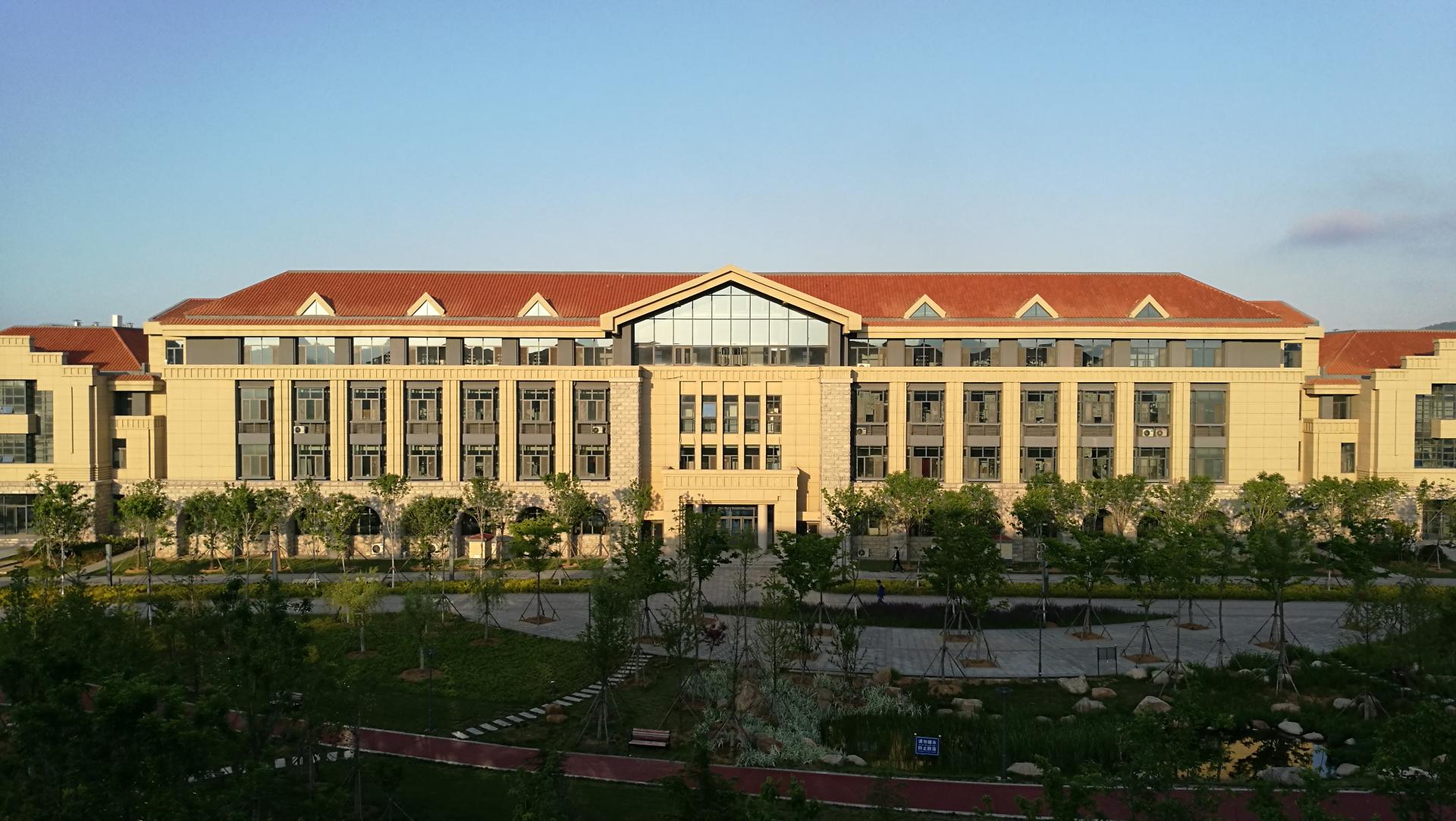
Microbiology and Microbial Technology in Shandong University has a long history and brilliant achievements. In 1950, Professor Wang Zunong was invited by former vice-president of Shandong University Tong Dizhou to return from France and founded the discipline of Microbiology at Shandong University. Since then, the Department of Microbiology at Shandong University opened up one after another leaderships among the universities directly belonging to the Ministry of Education:
n Enrolled graduate students in 1955;
n Built one of the first microbiology majors in China in 1958;
n Established the Institute of Microbiology directly belonging to the Ministry of Education in 1963;
n The only one Doctorate-awarding branches at university affiliated to the Ministry of Education among the earliest ones of having right to confer Doctorate among in 1981;
n The establishment of the first Microbiology Department among Chinese universities in 1984:
n Set up the Department of Microbiology Engineering; Microbiology was selected as national key discipline in 1987;
n Postdoctoral station for Microbiology was established in 1991;
n State Key Laboratory of Fermentation Engineering was initiated in 1987 and approved with name of State Key Laboratory of Microbial Technology in November 1995.
As a pioneer of microbiological education in Chinese multi-disciplinary comprehensive universities, the national science and technology training base of life science and technology was set up in 2002 based on the Department of Microbiology at Shandong University. A large number of microbiology professionals have been trained for our country yet.
In order to promote the better development of the State Key Laboratory of Microbial Technology, the Institute of Microbial Technology was established in October 2017.
The State Key Laboratory of Microbial Technology insists on facing the major strategic needs of the state, taking technological innovation as its mission and striving to forge ahead. After thirty years of development, the Key Laboratory has been built into a leading international research unit for microbial technology and a base for scientific and technological exchange and cooperation. It has promoted the development of microbiology and has played a very good leading role in the related research fields nationally and internationally.
Research subjects and goals
Microbial technology is the key technology and core of the modern biological transformation as well as the green biological manufacturing industry. It is the important foundation and precursor of the development of life science and biotechnology. It plays an important role in the basic research of biological science and the bio-manufacturing industry, aiming to solve the shortage of resources of the human society. In terms of serious challenges such as environmental pollution, food crisis and ecological destruction, microbial technology plays an irreplaceable role. The Key Laboratory focuses on the development and innovation of microbial technology, with an emphasis on the overall layout of four research subjects: resources and environmental microbial technology, medicinal microbial technology, industrial microbial technology and marine microbial technology. By developing the genetic manipulating system for microbes, such as bacteria, yeast, and filamentous fungi, it is committed to improving and innovating the platform of microbial technology system in the study of microbial genetic and metabolic mechanism, the functional potential of microbes and the application of microbial technology. We aim to create new biological functions, excavate new strains and develop new processes and products. At the same time, it promotes the development and innovation of technology through international, domestic and internal cooperation.
Research achievements
In the past four years, the Key Laboratory has undertaken 360 scientific research projects, whereas the budget have reached 210.6653 million yuan, as well as authorized 69 patents for international and domestic invention. 557 papers on SCI have been published and the number of papers, impact factors and frequency of citation have been greatly improved. A number of achievements have been published in top-journals such as Nature Nanotechnology, Cell and PNAS, showing that the research level of the Key Laboratory has been substantially improved. The main research results have been in the advanced or leading ranks of the world. In addition, 13 books of the monograph are edited or translated.
Professor Qu Yinbo, the 973-project chief scientist, as the prize-winner in first place, received the second award of national technological invention for the technology of cellulosic ethanol production from corn cob residues. The project not only breaks through many technical bottlenecks, but also fills the gap in China and has taken the lead in establishing a pilot plant with 3000 tons yield of cellulosic ethanol from corn core and a million-ton production demonstration device in the world, reaching the international leading level.
As the State Key Laboratory, with the guidance of national demand and social development, we have long adhered to actively expand the basic research on the application of strategic microbial technology for social sustainable development and kept the domestic leading position in these fields. Some of them (such as cellulose degradation mechanism, lignocellulose, bio-refining technology, genetic manipulation technology of autotrophic acidophilus bacteria, diversity of bacterial resources and adaptive evolution mechanism of complex group behavior, protease cold and marine nitrogen metabolism mechanism, degradation of sulfur and nitrogen heterocyclic pollutants and utilization of resources, etc.) have reached international advanced or leading level and have a good performance in international counterparts. Good reputation has formed an important international impact. At the same time, through the introduction and development of the research area to meet the international frontiers, such as the introduction of Professor Zhang Youming, the inventor of the Red/ET system, we have reached the international leading level in the genetic operation of DNA and the integration of the genome in one step.
Research teams
The Key Laboratory attaches great importance to the construction of the academic team. In terms of the layout of the subject and the area of the key research field, we widely extend the high level of talents from home and abroad, optimize the discipline, learning and age structure, promote the construction of the team and improve the overall competitiveness of the academic team. The key laboratory boasts a high-caliber research team, these experts and scholars have led the research team to promote the scientific research of key laboratories.
Cooperation and exchange
With the development the exchanges and cooperation between Key Laboratory and other domestic and foreign institutions, research institutes and even transnational enterprises have also been expanded and deepened. The Shandong University-Helmholtz Institute of Biotechnology, co-built with the Helmholtz Center for infection research in Germany (HZI) and the Helmholtz-Institute for Pharmaceutical Research Saarland (HIPS), was officially established in 2014. On this basis, the Ministry of education and the State Foreign Experts Bureau jointly implemented the "microbial genome project" discipline innovation intelligence base, which was approved in 2015. Through the platform of the Shandong University-Helmholtz Institute for biotechnology, 11 research papers were published jointly, and several of them were published in Nature Nanotechnology, Nature Protocols, Chemical Science, Nucleic Acids Research and other magazines.
The Key laboratory has collaborated with many universities and research institutes nationally and internationally to publish more than 100 cooperative articles. For example, in the field of bacterial bacteria, Professor Li Yuezhong and French scientist Mignot have made important breakthroughs in the study of the kinetic response protein of Myxococcus. The article was published in PLoS Genetics and received extensive attention. Prof. Qi Qingsheng and Dr. CarolSK Lin, a scientist in Hongkong, jointly applied for the Hongkong natural fund, and published many papers. The related results have been widely followed with interest. Prof. Zhang Yuzhong with Professor Aharon Oren of Israel and the professor of Oklahoma State University, United States, published a study on the boundaries of the genomes by genome information, which was reported by the American microbiology society.
The Key Laboratory has cooperated with the local government to build the physical platform of the Yucheng Biological Engineering Application Technology Research Institute of Shandong University and the Sino German bio-pharmaceutical Technology Industrial Park. Dezhou and Qingdao City Blue Silicon Valley Administration support 15 million scientific research funding each year for the precision of fermentation technology and engineering docking, as well as the biological and pharmaceutical industry innovation and other in-depth cooperation. The application technology based on laboratory research has signed more than 70 cooperation projects with enterprises in the past 5 years.
Condition Guarantee
The Key Laboratory insisted on the centralized resources construction of public instrument platform, which was mainly supported by large and medium-sized scientific research instruments and equipment, high quality experimental engineering technicians and humanized management. The institution currently possesses nearly 8,000 pieces of instruments and equipment, with a total value of approximately 300 million yuan. This includes 70 large-scale instruments priced above 500,000 yuan each. It has established six specialized sub-platforms: physicochemical separation and analysis, protein science, substance structure identification, bioengineering, microscopic imaging, and germplasm resources. Equipped with a range of large-scale, high-precision research instruments, the institution's comprehensive scientific research facilities have reached first-class domestic standards.
The State Key Laboratory of Microbial Technology is one of the two State Key Laboratories of Shandong University. The leaders of the university have always been concerned about the work of the Key Laboratory and giving the key support to the development of the laboratory. They are inclined to the laboratory policy in many aspects such as the matching of the funds and the conditions of the office. In order to consider the long-term development of the Key Laboratory, Shandong University decided to make the Key Laboratory move to Qingdao campus as a whole.In 2018, the laboratory was fully relocated to the Qingdao Campus of Shandong University, with the entire move injecting new vitality into its development. The laboratory now boasts a floor area of 22,000 square meters, more than three times its pre-relocation size, and has partnered with local governments to construct a pilot platform with a total investment of 500 million yuan. The official launch of these hardware facilities has provided broader space for the laboratory's growth and advancement.
Future development
The State Key Laboratory of Microbial Technology will continue to adhere to the frontier of science and technology in the world, face the major needs of the country, face the main battlefield of the national economy, strengthen the innovation of science and technology and the training of talents, give full play to the role of bridge across basic scientific research and application of microbial technology and push forward the world first-class section. The construction of research institutes has developed into a world-class discovery and innovation center.
Adress:State Key Laboratory of Microbial Technology, Shandong University, No. 72 Binhai Road, Qingdao 266237, P.R. China
Tel: (86)-0532-58631501 (86)-0532-58631597 Post Code: 266237
CopyRight ® 2018 State Key Laboratory of Microbial Technology, Shandong University
